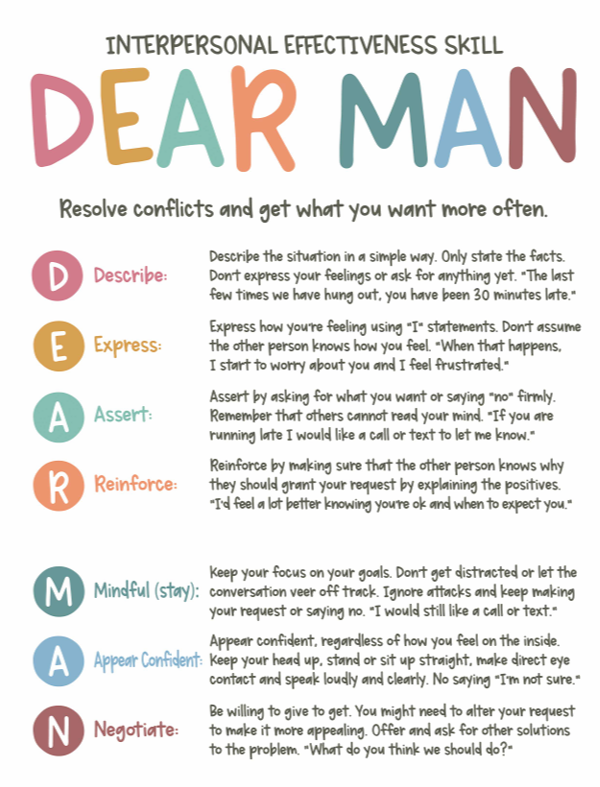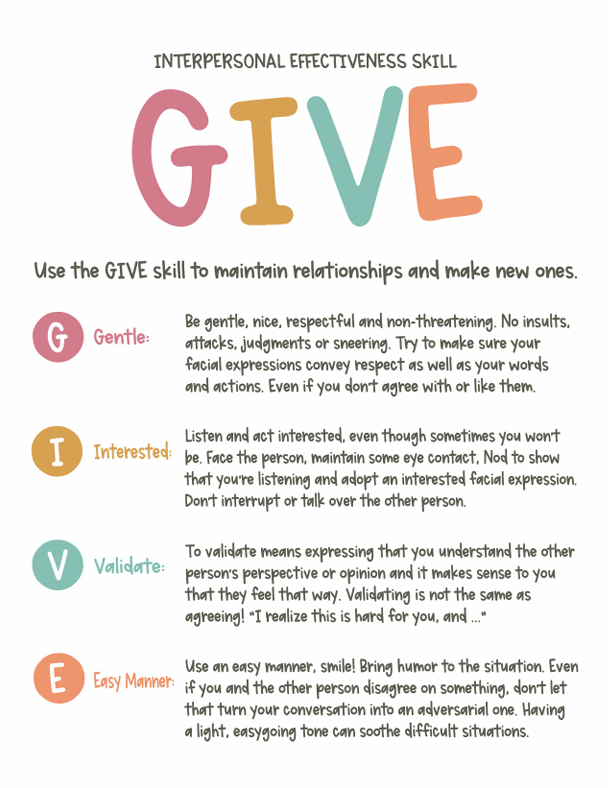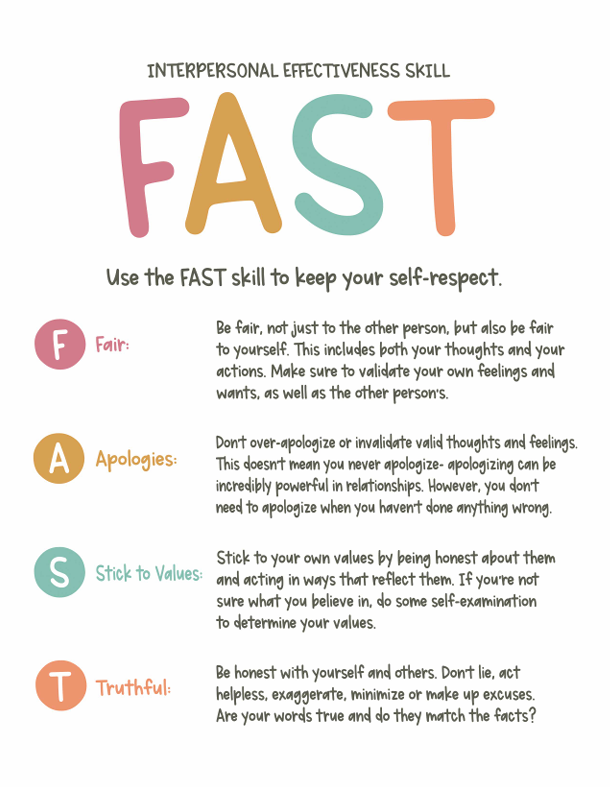Trust and Communication, Pt. I
July 1st, 2024In relationships there are many ways that things can go wrong. When it’s worked out most of those things can improve when there is more open, clear, assertive communication and trust. We are going to split this into two parts and first talk about trust.
Trust is defined as – assured reliance on the character, ability, strength, or truth of someone or something; one in which confidence is placed; dependence on something future or contingent: hope. Trust for most individuals can be powerful, vulnerable, and at times fragile.
Brene Brown (https://brenebrown.com/
Let’s start with boundaries – setting boundaries is making clear what’s okay and what’s not okay with the explanation of why. Boundaries are crucial to self-respect and self-love. They help others know what we need and what we are okay with doing.
Reliability comes next – do what you say you will do. Stay aware of your competencies and limitations, don’t overpromise; deliver commitments and balance competing priorities.
Accountability – take ownership of the mistakes made, apologize, and make amends. The power of an apology can be transformative.
Vault – not sharing information or experiences that are not yours to share.
Integrity – choosing courage over comfort; what’s right over what’s fun, fast, or easy; and practicing personal values not just saying them.
Non Judgment – being able to ask for what is needed from each person in the relationship; talk about how everyone is feeling without judgment.
Generosity – extending the most generous interpretation to the intentions, words, and actions of others.
Each of these elements do not need to be rigid rules. There is a certain ebb and flow in communication and relationships. It’s important to let guidelines be reminders, posts, areas to grow together and learn together.
Trust helps as well in what DBT calls Interpersonal Effectiveness. This group of skills are about helping relationships grow, communicating clearly, assertively, and openly.
Three specific skills are: DEAR MAN, GIVE, and FAST.
DEAR MAN

Give

Fast

Again, communicating what we need and how we feel can feel quite complicated. There can be a lot of fear there; not knowing how they’ll respond. There is a skill called an “I statement” that many therapists, coaches, communication experts defer to when working on expressing a feeling and an unmet need. It has four parts: “I feel _________ when _________ because __________.” Request __________. They are excellent at diffusing conflict, opening up, seeking change.
An example of feeling betrayed: “I felt betrayed when I noticed you had cancelled our dinner last night because I then saw you with someone else. I need to have some more openness and honesty because we move forward.”
There are many ways to use “I statements” and they don’t always have to be used for difficult emotions and feelings. They can be used for expressing joy over something, contentment, curiosity. Be careful when trying “I statements” because saying “I feel like you don’t listen” is not an “I statement”, that is an opinion and can escalate an argument. Instead try “I felt unheard when I was sharing something scary because you were on your phone the whole time.” When we share our feelings in such a clear way there can be a path toward problem solving, deeper trust and relationship building.
Check in next week about further communication resources from The Gottman’s (gottman.com).
Written by Katie Walter



